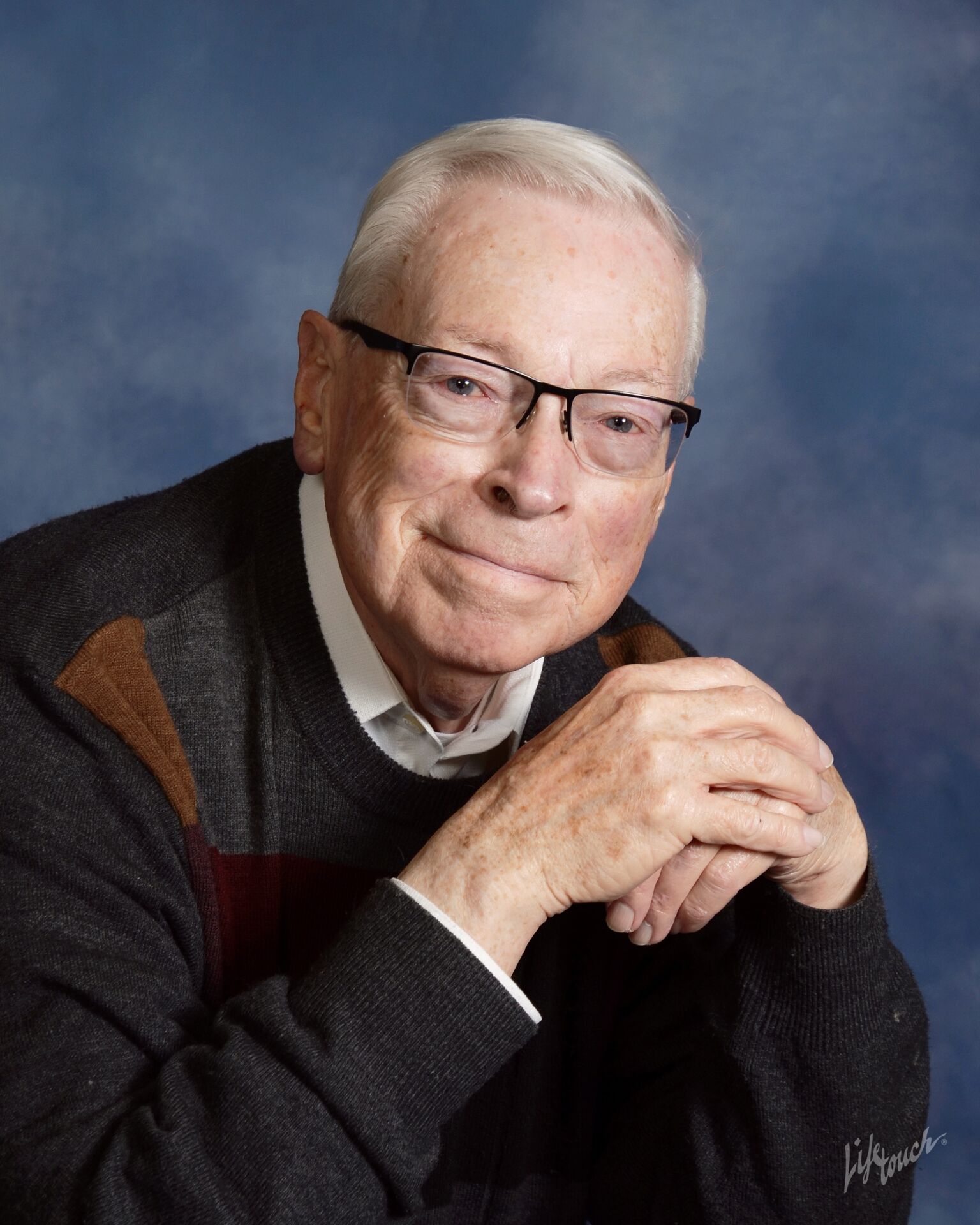Chapter fifteen
Mastering the Art of Forgiveness
Working with the Higher Life

By Dr. Robert Leichtman
Sometimes we find ourselves in situations that push us to the limits of our abilities, tolerance, and endurance. When we are overwhelmed in this manner, some will retreat into defeat and resentment. Others believe impending disaster is our cue to call on a higher power to support us. They believe there must be a plan and resources that can help us in this crisis.
Unfortunately, superstitious people sometimes give this higher power a bad name and discourage intelligent people from summoning it to assist us. However, the narrow thinking of other people need not distract us from the legitimate support of our higher guidance and powers to cope with our challenges. We may, however, need a new approach to this pursuit.
Seeking help from the resources of our higher life can be a commonsense idea similar to how we might seek repairs for our car. Suppose we have special access to the factory where our automobile was assembled. We might be able to return it to the factory for maintenance, plus any available upgrades. Even repair for dents and scratches would be possible. If we believed there was some fault in the design, we could consult with the engineers to fix any problem. How about that!
When we connect to our innate, higher intelligence, something similar is possible for our body and personality. Just as skillful engineers design our automobiles, higher intelligence creates designs for healthy bodies, minds, and emotions. We must take advantage of this fact and learn to use the higher life as a resource for repair, renewal, and enrichment.
Our innate intelligence
Many doubt the existence of an inner intelligent life force that sustains and repairs our bodies. However, evidence for its presence is abundant. For example, we do not have to think about or understand how to digest a peanut butter sandwich or repair a small cut on our hands. Nor do we have to consciously direct our heart or breathing to speed up if we exercise. The innate intelligence of the body manages these changes for us automatically. Our conscious attention is not required.
This innate intelligence shapes our response to infections and physical injuries. Our immune mechanism rushes to neutralize various germs and rebuild the body’s health. At a less obvious level, this intelligent power serves continuously to prevent illness and supervise the integrity and function of our physical body.
Healing and renewal of the personality
While our innate intelligence works smoothly to repair and heal the physical body, it works less directly at the level of our personality. For example, problems with resentment, fear, and discouragement often require our conscious attention. Repairing, renewing, and growth at the psychological level are only partly automatic. Much still depends on the deliberate and skillful redirection of our thoughts and emotions.
Despite this complication, we all eventually develop coping mechanisms to manage insults and other injuries to our well-being. While these skills may be inadequate, we will undoubtedly learn how to handle most annoyances and not allow every disappointment to distract us. This development begins our ability to practice automatic healing at least for our lesser emotional injuries.
The capacity to repair mental and emotional distress proceeds faster in some people than others. Some understand that our best path to peace and harmony is to seek the skills, knowledge, and resilience to cope with our many challenges.
Others seem to prefer to develop their capacity to resist these challenges by practicing avoidance, denial, stubbornness, or intimidation. These maneuvers are successful to some degree. However, these habits are destructive to relationships and leave many conflicts unresolved. This path of resistance is not nearly as successful as the path that focuses on building better skills for managing our challenges.
Working with our inner potential for healing
We all arrive on earth with a powerful birthright of our innate intelligence and a capacity to have a relationship with the great life force that gives vitality and intelligence to all life forms. While getting lost in speculations about these possibilities is easy, it is realistic and practical to call on these resources to help us in our time of need.
This process of collaborating with this higher power is not as complex as many make it. For example, we work with forces supporting healing and renewal whenever we recover from minor colds and bruises. We can do this without being confused by theological details. We also benefit from these higher forces as we absorb our emotional hurts and disappointments into our greater confidence and love for life.
Of course, many will claim that our physical body already has the power to heal, maintain, and digest the food we eat. However, there is a higher intelligence that designs and energizes the mechanisms that keep us healthy. This is part of the higher life that transcends the physical forms it animates and can accomplish repairs that body and personality cannot achieve by themselves.
Simple ways to summon our higher life to help us
Anyone who works with children knows that sincere praise and warm encouragement usually elicit and enhance cooperation. We can use kindness to get children to do things that would not happen without it. Our active and affectionate concern will link us to their attention and capacity for cooperation.
While these attitudes and concerns seem natural when working with children, this practice may seem strange or absurd in our relationship with our bodies and personality. Adult individuals often treat their bodies and character as a machine they own and should function flawlessly. We expect it to be healthy and ready to obey our requests. Health is supposed to be our natural state. However, demanding our bodies to operate perfectly may be too much. We will have better results if we apply respect and kindness when expecting our bodies to function well and be free of discomfort.
The gentle way we work with children is similar to how we can summon our inner life resources to support healing and renewal for ourselves. We cannot demand children obey and stop coughing or having runny noses. The innate healing mechanism will also be unlikely to respond to demands or threats. We need to relate to it in the same manner and reason that a good parent encourages the proper behavior in children.
Our innate capacity for repair and healing will operate at its own pace, but it also will respond favorably to our encouragement and gratitude. For example, we can thank our body for loyal and effective service for many years. We might be grateful that our feet stand and walk for us effectively. We can be sorry that our knees, nose, or tummy are upset now, but we hope they return to normal status quickly. We know that both we and our knees or nose desire this. We wish them well and encourage a rapid return to complete comfort and healthy function.
Yes, this may seem somewhat childish, but the simple tone elicits an extra boost from our body or subconscious. We are not speaking to our peers. Instead, we respectfully address the powerful and deeper intelligence in us.
We can quietly remind ourselves that our inner intelligence has helped us recover from many cycles of irritation, pain, conflict, discouragement, resentment, and anxiety. While we are concerned about our current distress, we know healing can happen again. Whatever helped us in the past can return to restore peace of mind and confidence.
Curiosity as a cure for indifference and stalemate
Curiosity means we think for ourselves and do not automatically follow what others are doing. It means we often test our assumptions by asking ourselves what we truly know and how we know it’s true. With curiosity, we do not stop at the first seemingly correct answer we get. Instead, we keep going for the second or third good answer, which might be more comprehensive and valuable than the first two. Curiosity means we know there is always more to learn. We must never assume we know enough.
We must turn on our curiosity to increase our belief in our higher human and spiritual potential. For some intelligent people prone to cynicism, curiosity may be a more helpful path than faith alone. Even dedicated cynics can be curious about why stuff happens or fails to happen. They can wonder what they have missed in their observations and what they could do to mitigate their distress.
We can apply our curiosity to such fascinating topics as how we have effectively sabotaged our well-being without being aware of it. We might even be curious about what is wrong with our current approach to managing our distress. Perhaps we might discover that we have been wasting time on sophisticated versions of banging our heads on a wall.
Mature curiosity can be essential for curing the habit of living in the worst of our past and meditating on what went wrong. Obsessing about the faults of our enemies and society can be a powerful lure, but ultimately, this serves only to bond us to adverse events and forces and encourage more disappointment. Exploring what we can do to help ourselves instead of attacking others will allow us to shift to more constructive priorities.

Our resistance to healing and renewal
Unfortunately, the doubtful and cynical types emphasize that many problems are not easily solved. Complex cases of deep disappointment or anxiety require us to resolve the underlying issues, beginning with the dysfunctional way we view them. This effort must include restraining our outrage, deep despair, helplessness, or apathy that opens us to avalanches of resentment. Fortunately, our reactions of anger and agitation are emotions that we generate, and what we create can also be controlled by us.
Those who allow their anger and frustration to take over their mood and behavior must recall what is effective in managing children’s distress. Being angry and punitive to small children for the messes they make would be counterproductive, perhaps child abuse. When we resent the sickness in our body or personality, we sabotage our health. While effective emotional control is not easy to achieve, we need to do all we can to apply goodwill and respect for ourselves and our capacity for healing and renewal.
A word of caution is needed for those who champion frequent bouts of venting their anger and despair, either by rage or long sessions devoted to complaining. While the immediate results can be a feeling of vindication, the long-term effects are not favorable. Expressing anger to get rid of anger is not a mature path to take. Our personality is not like a rug that we can beat to clean!
Whatever we exercise tends to increase in power and intensity. It is not wise to become more effective in complaining, self-pity, or sulking. These methods only provide minimal success if we want to succeed through intimidation, arrogance, or denial. Even then, only talented psychopaths can make it work for them!
A word for the very religious
Some wonder why we don’t simply drop all these explanations and go directly to God. The answer is for the same reason that we do not go directly to the governor of our state when we need help dealing with the bureaucracy. It is naïve to believe that there is only the physical plane with all its problems and God with all the divine answers. The appropriate levels of intermediaries are present, and we need to learn to work with them.
We might recall when Jesus was preaching to small groups, that one day He noticed that His healing energies were drawn upon and asked, “Who touched me?” A woman seeking healing had touched his clothing and was healed! Later, it was reported that she touched the hem of his garment.
This maneuver is what ordinary people like us can easily do. We are touching the “hem of the garment of God” in us by giving recognition and praise to our inner healing powers and expecting support from this source. Some would call this practical spirituality.
Building our awareness and creative changes
As we seek to cultivate a mature consciousness, we also develop better connections with the higher life beyond our innate intelligence. We get nudges of inspiration and guidance to delve into our more profound potential. Some pursue extensive development of these connections, and a few cultivate solid affiliations. These associations can evolve into particular areas of genius in leadership, the creative arts, teaching, counseling, or scientific expertise. Higher powers and intelligence are not just for healing and renewing our bodies.
The higher life is available to everyone but is ignored by many. Most people attribute their exceptional understanding and abilities to being lucky or the natural consequences of what they already know. They fail to appreciate that their excellent skills and strengths are often supplemented by their inner life operating from the unconscious. Just as the power of gravity works without our conscious understanding, we often receive helpful support without any attention to its source.
We grow stronger and more competent as we integrate new awareness, knowledge, and other qualities into our character. Our higher human and spiritual life is the ultimate source of many of these powers:
- An inner core of values that strengthens our identity and independence from others and will protect us from excessive peer pressure and group minds.
- Access to a higher intelligence that provides insight and guidance about us, our challenges, and our opportunities.
- The ability to recognize the larger patterns and context of events in our relationships and situations.
- Connections to the underlying universal forces that establish order and lawful change in our world.
- Find deeper meaning in our life experiences related to spiritual principles and the lessons we need to learn.
These possibilities are often ignored or taken for granted as a natural event with no particular significance. However, this is our birthright, and there is much we can do to activate these developments and practical benefits.
Commentary
Those who seek healing of body and mind need to learn to cooperate with our innate intelligence that supervises and operates our capacity for healing and growth. This intelligence knows how to digest our food and build new skin and other cells for our body. It is our partner in all health maintenance and healing activities.
Everyone has access to a higher power that creates and supervises the design and vitality of our personality. Learning to collaborate with this spiritual force is a vital resource we can use to help us when we have reached our human limits of strength and skill.
Our curiosity, faith, and constructive imagination can link us to these higher resources. Mindfulness of our earlier experiences of physical health, cheerfulness, confidence, and strength can help to connect us to these more significant sources of vitality and health. What we have achieved can be achieved again with the support of higher power.
Some people are bound to religious restrictions that limit their access to a higher power. Each person needs to explore the methods and beliefs that work for them, beginning with the idea that a higher power exists and is already deeply involved in preserving and promoting a high quality of life for us. As all decent parents love their children, higher power loves the best in us, even with our imperfections.
Life can be wonderful and exciting if we recognize that it is more complex and rewarding than the mundane events that can overwhelm us.
Summary
- Our destiny is to cultivate and give expression to the best in us. This concept implies we can recognize and nurture our profound potential for awareness, intelligence, talents, and productivity. We must believe in these possibilities for ourselves and regard them as more significant than any outer situation or event.
- Beware that our human tendency to be impatient and demand instant health and comfort is not an effective way to summon our healing and enriching potential. For this, we need gratitude for any assistance and respect for the forces that support our well-being. To establish effective collaboration with these higher powers, gentleness and patience will be necessary.
EXERCISES
- Reflect on the natural order and intelligence of our body as it automatically regulates our blood pressure and digestion and seeks to repair any illness or injury. Appreciate that these events indicate how our higher intelligence is already at work in us to maintain our physical health.
- Think of our emotional wounds. These also tend to heal themselves as we draw our fear, anger, or sadness into the greater benevolence of the higher life in us. Can we quietly sense a peaceful and confident presence that lies beyond our distress? Can we calm ourselves sufficiently to bypass the distractions that veil this inner life?
- Can we recognize that our past experiences of strength, cheerfulness, and confidence are signs that higher power has already been energizing our good qualities and abilities? Can we conceive that our gratitude for these experiences will work to summon higher power to us again?
Think on these things

Chapter 17: What To Do When Forgiveness Seems Too Difficult
Chapter Seventeen Mastering the Art of Forgiveness WHAT TO DO WHEN FORGIVENESS SEEMS TOO DIFFICULT By Dr. Robert Leichtman Listen to this course The work

Chapter 16: Self-Forgiveness & Self-Acceptance
Chapter Sixteen Mastering the Art of Forgiveness SELF-FORGIVENESS & SELF-ACCEPTANCE By Dr. Robert Leichtman Listen to this course Much of our informal learning derives from

Chapter 14: Being Proactive versus Reactive
Chapter fourteen Mastering the Art of Forgiveness BEING PROACTIVE versus REACTIVE By Dr. Robert Leichtman Listen to this course Winston Churchill emphasized one of the
